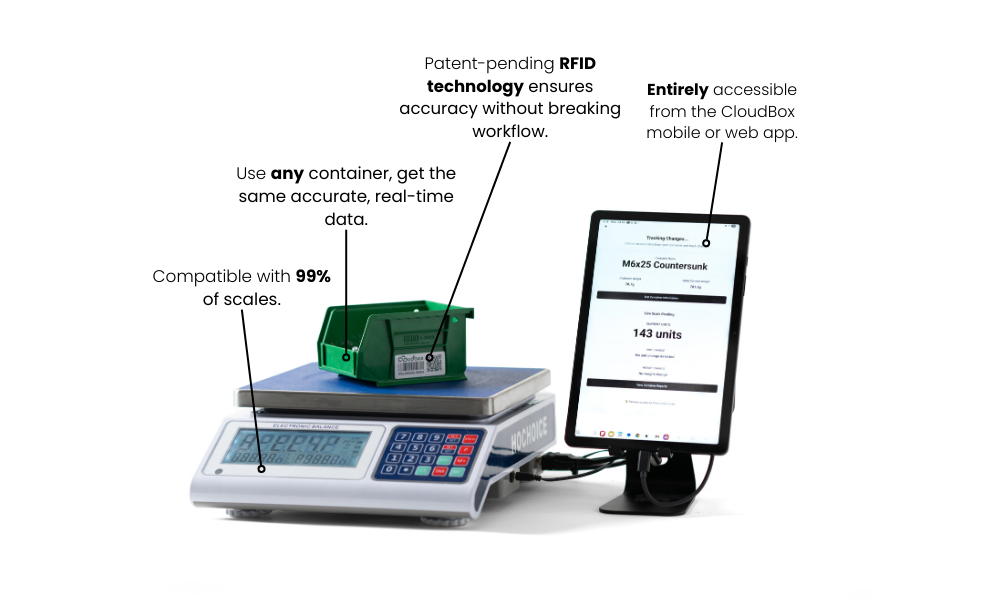
High value medical hardware plays a critical role in modern healthcare. From orthopedic screws to surgical kits and implant trays, these items are not only expensive, but also tightly regulated and often life saving. Misplacing a single component can delay a procedure, create compliance concerns, or result in thousands of dollars lost in wasted product.
As surgical volumes rise and operating rooms become more complex, the challenge of managing these assets grows. The solution is not just more storage space or tighter checklists. What healthcare systems need is smarter storage, tools that provide real-time visibility, track usage automatically, and protect every item from loss, misuse, or misplacement.
The True Cost of Mismanaged Medical Hardware
Consider the average orthopedic screw. It may cost between thirty and two hundred dollars depending on size, material, and supplier. But the true cost is much higher when you factor in logistics, sterilization, and clinical coordination. Multiply that by dozens of screws across multiple patients, and you start to see how important accurate inventory tracking becomes.
Now imagine misplacing even a small tray of implants or failing to restock one of the items in a surgical set. The consequences go far beyond inconvenience. A procedure may be delayed. A replacement order may need to be overnighted. A compliance report may be filed to explain what happened.
Hospitals cannot afford to treat high value inventory like office supplies. These are clinical tools, and they require clinical grade systems to manage them.
Common Pitfalls in Current Systems
Many hospitals still rely on manual tracking for high value inventory. Staff log surgical kit use with stickers, check items in and out using clipboards, or rely on periodic counts to catch discrepancies. These workflows are slow, prone to error, and disconnected from other systems like purchasing or scheduling.
Some facilities invest in barcode systems or RFID tagging, but these often require staff to remember to scan every item, and they may not provide enough granularity to track quantity, location, or movement in real time.
The result is a system where supplies go missing, kits go out incomplete, and assets are hoarded or misused due to lack of trust in the data.
A Better Approach with Smart Storage
CloudBox brings automation and accountability to the management of medical hardware. Each container is equipped with weight sensors that track exactly how much of a product is inside. Whether you are storing titanium screws, bone plates, or surgical instruments, CloudBox can monitor movement and usage in real time.
Instead of relying on someone to log every action, the system records changes automatically. When a screw is removed or returned, that change is tracked. When a tray is restocked, the system knows. This gives teams immediate insight into what is available, what is missing, and what needs attention.
Because the data is live and accessible from anywhere, department heads, supply chain managers, and surgical coordinators can make faster, more informed decisions.
Scaling Across Facilities and Use Cases
One of the strengths of CloudBox is its flexibility. A unit can be used in the central supply room, the OR prep area, or even inside a mobile surgical cart. Each container operates independently while feeding data into a shared platform. This allows large systems with multiple locations or departments to unify their hardware tracking without disrupting workflows.
You can track usage by department, monitor turnover rates for specific tools, or analyze which procedures are consuming the most inventory. This kind of insight helps forecast demand, reduce overordering, and ensure critical supplies are always available when needed.
Improving Compliance Without Slowing Down Teams
Regulatory compliance is another key reason to improve inventory tracking. Many high value items fall under strict usage and reporting guidelines, especially when implants or patient matched tools are involved.
CloudBox simplifies documentation by keeping a detailed log of what was used, when, and by whom. These records can be exported, reviewed, or audited as needed, without adding more paperwork to the surgical workflow.
This makes it easier to stay compliant with internal policies and external standards, including those required by accreditation bodies and government regulators.
Final Thought
In healthcare, time matters. Precision matters. And accountability matters. High value medical hardware deserves more than a cabinet and a clipboard. It needs a system that is as reliable as the procedures it supports.
With CloudBox, hospitals and surgical centers can take control of their inventory with confidence. You get real-time insight, cleaner data, and fewer delays, all while giving your team the freedom to focus on patient care.
Smart storage is not just about keeping track. It is about moving forward with certainty, knowing that every tool, every screw, and every tray is exactly where it should be.
.avif)

.png)




.png)

.png)
.png)




